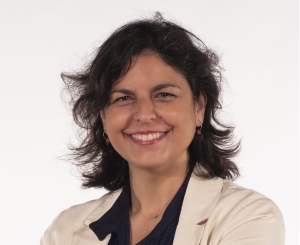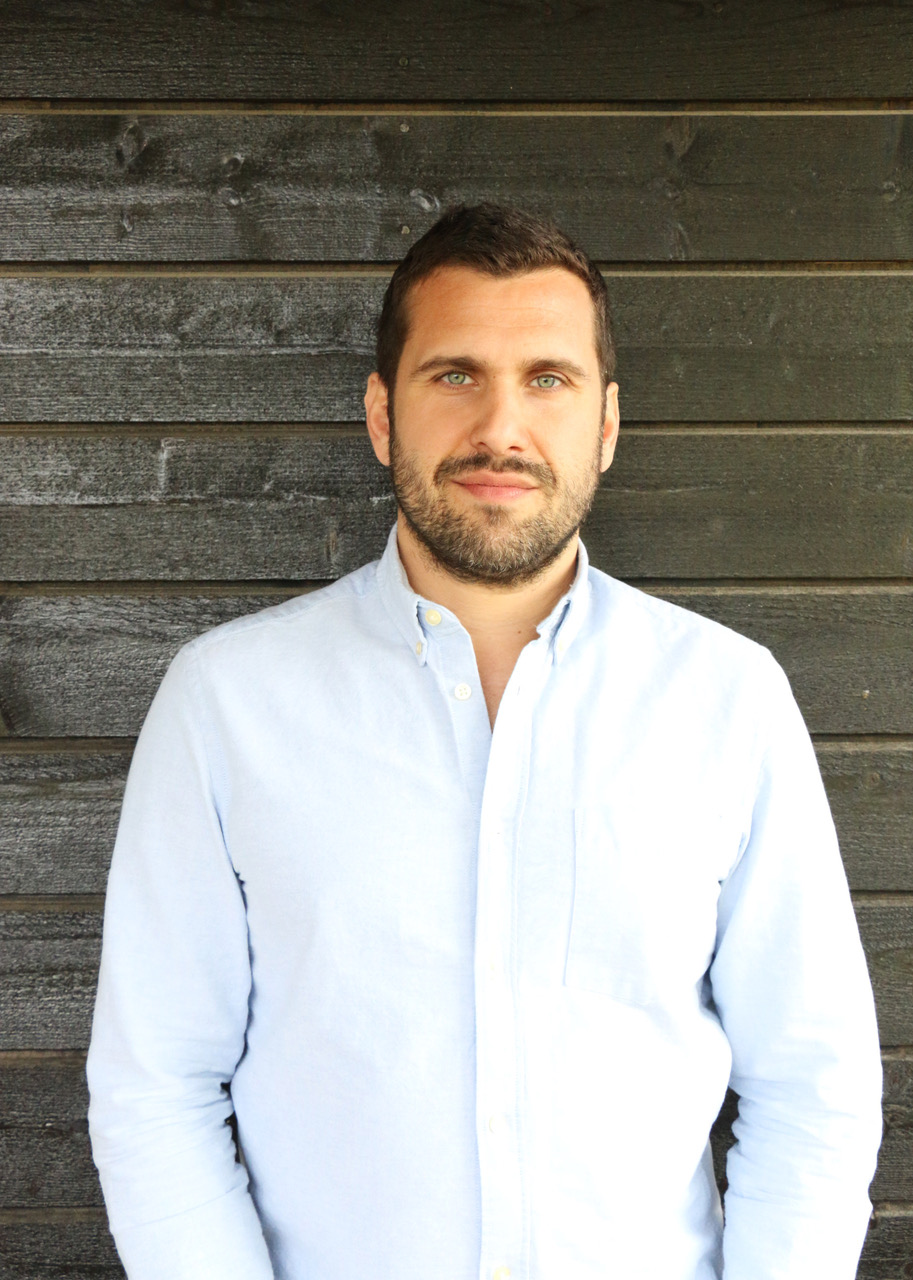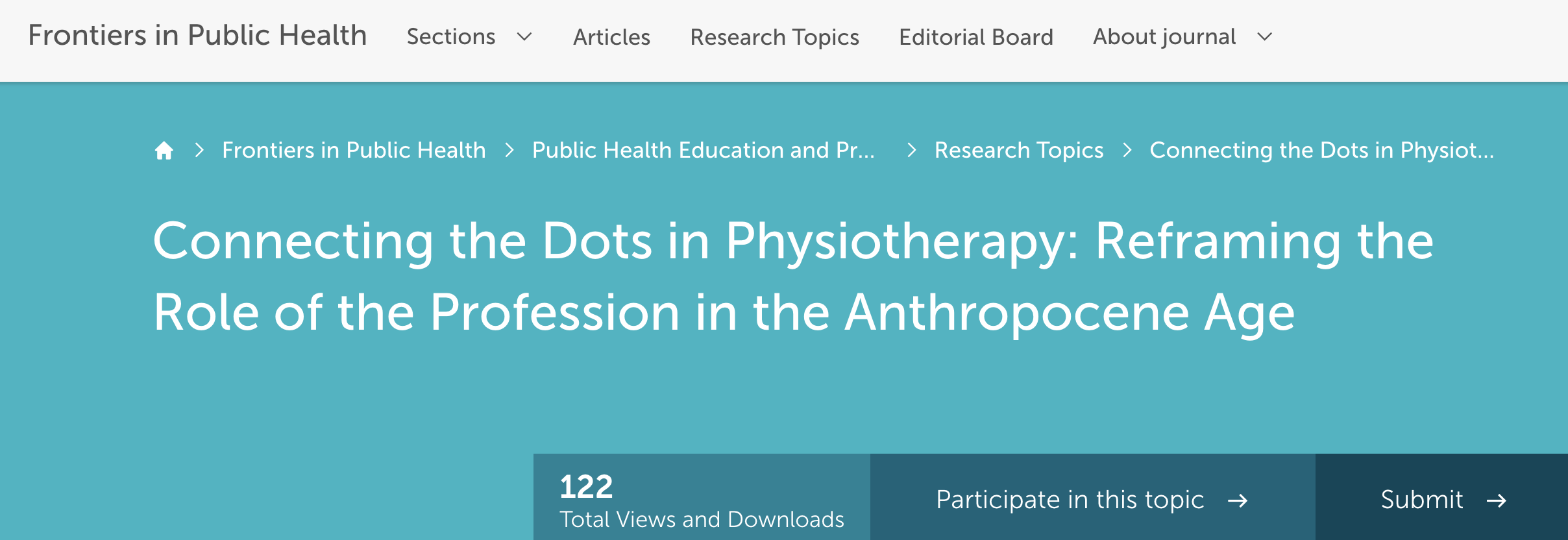Ever since the founding of the EPA, environmental physiotherapy has been growing from strength to strength. We have produced over 100 academic publications of different types, written over 130 blogposts in more than 10 languages, are producing extensive resources for EPT education and practice, have created a series of EPT courses, and celebrated and advanced the emergence of EPT at the first-ever EPT festival late last-year. And we are not slowing down. As work in all of these directions continues, we are excited to launch the first-ever special issue of an academic journal that will feature and deeply embrace environmental physiotherapy. We hope this will be a collaborative effort bringing together the expertise and research of our community. Here is the full call for papers:
For many decades, physiotherapy services were characterized by rehabilitative care carried out primarily in hospitals and rehabilitation centers. However, despite the clinical, educational and research advances, in many parts of the world the imagination of policymakers and administrators in health services is irremediably linked to large rooms with dozens of stretchers and rehabilitation equipment. From those black and white photographs that are part of the honorable past of the profession, where physiotherapy played (and still plays) a crucial role in caring for victims of wars or those with consequences of polio, the discipline has moved on to an abstract painting of a multitude of colors.
Looking towards the future in the Anthropocene age requires more than ever to delve into the roots of the etymology of the term physiotherapy, since it has much more to do with interventions connected to nature than linked to closed clinical spaces; much more with health promotion and early intervention than with tertiary, conservative, and contributory procedures. The use of physical agents in their curative, preventive and palliative facets is much broader in physiotherapy than in other health disciplines. But it is also crucial in health promotion, in the co-design of healthy environments, in health promotion in schools or in global health interventions, to mention just a few. Despite all this, research, practice, and innovative education in this area is often invisible and studies that support this approach are still scarce.
The current challenges posed by planetary (and human) health can also be framed in another alternative vision of health care, more linked to healthy environments (home, neighborhood, educational institutions, workplace, leisure spaces, etc.) and a perspective of health interventions more linked to nature. The role of physiotherapy in this open space enjoys a growing and strong interest, anchored in part as a response to the reductionism that a relevant part of clinical research grants to physiotherapy, increased with the massive inclusion of technology as a therapeutic and educational mediator.
Incorporating planetary health into physiotherapy pedagogy would facilitate community engagement and sustainability in the field. This open approach to physiotherapy allows not only to transform people’s lives but also to bring the distant premises of planetary health to local action. Once again, and more than ever before, it is necessary to bring up to the surface the scientific research in this area, open new debates and create spaces for future studies based on a more systemic, relational, and questioning conception of the discipline and its social role. The Research Topic aims to highlight the role of physiotherapy in nature-based health promotion interventions, in public health initiatives, global health and planetary health approaches. We will accept all methodologies and study designs, including theoretical perspectives. To contribute towards the development of this broad scope of physiotherapy, this Research Topic calls for submissions on physiotherapy linked to:
• Nature-based interventions and health promotion
• Planetary health from a global-local and local-global perspective
• Global health, ethics, and human rights.
• Environmental physiotherapy in all its approaches
• Urban planning and design, co-participation, governance, and public policies
• Healthy environments of all types, from broad approaches such as healthy cities to other areas such as healthy schools, universities, workplaces, leisure places, etc.
• Use of raw materials, outdoors natural spaces and environmentally responsible interventions
• Community participation, resilience, and health promotion
• Service-learning and community engagement in physiotherapy education.
#EnviroPT 🌍🌎🌏🚑
Header image by Alex Konokh on Unsplash

Berta Paz Lourido (PhD)
Directora de la Unidad de Innovación en desarrollo sostenible, salud y justicia global mediante aprendizaje-servicio. Universidad de las Illes Balears
Berta is Associate Professor in physiotherapy and teaches community physiotherapy, urban planning, environment and public health. In the last years, Berta has specialized in Service-Learning and is leading its development at the European and Spanish levels, such as president of the Spanish Association and vice-president of the European Association of Service-Learning in Higher Education, among others.

Filip Maric (PhD)
A/Prof, EPA Founder & Executive Chair
Filip Maric is Associate professor at UiT The Arctic University of Norway, and founder of the Environmental Physiotherapy Association. He is interested in the outer rims of healthcare and critical physiotherapy, philosophy, #EnviroPT, environmental post/humanities, planetary health and sea kayaking.


